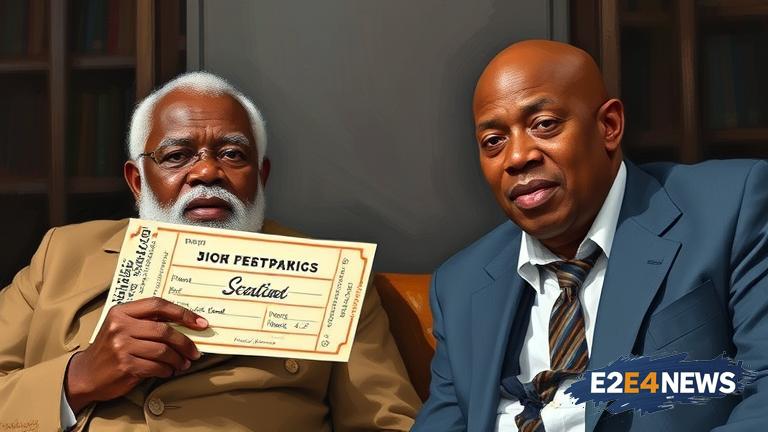In a recent statement, Bode George, a former Deputy National Chairman of the Peoples Democratic Party (PDP), has expressed his strong disapproval of the northern ticket, which has been a subject of debate in Nigerian politics. George’s comments have sparked a heated discussion, with many Nigerians weighing in on the issue. The northern ticket refers to the practice of political parties fielding candidates from the northern region of Nigeria, which has been a dominant force in the country’s politics. George argued that this practice is undemocratic and undermines the principles of fairness and equality. He also stated that the northern ticket is a recipe for disaster, as it ignores the diversity and complexity of Nigerian politics. According to George, the northern ticket is a relic of the past and has no place in modern Nigerian politics. He emphasized that Nigeria is a diverse country with many different regions, ethnic groups, and interests, and that any political arrangement that ignores this diversity is doomed to fail. George’s comments have been met with both support and criticism, with some Nigerians agreeing with his assessment and others dismissing it as mere politicking. The debate over the northern ticket has been ongoing for many years, with some arguing that it is necessary to ensure the stability and unity of the country, while others see it as a form of marginalization and exclusion. The issue has been further complicated by the fact that Nigeria is a country with a long history of ethnic and regional tensions, and any political arrangement that is perceived as favoring one group over others is likely to be met with resistance. Despite the controversy surrounding his comments, George remains a respected and influential figure in Nigerian politics, and his views on the northern ticket are likely to be taken seriously by many Nigerians. The PDP, which George formerly served as Deputy National Chairman, has been at the forefront of the debate over the northern ticket, with some members of the party arguing that it is necessary to ensure the party’s victory in future elections. However, others within the party have expressed reservations about the practice, citing concerns about its impact on the party’s internal democracy and its ability to represent the diverse interests of Nigerians. The issue of the northern ticket is also closely tied to the broader debate over Nigerian politics and the role of ethnicity and region in shaping the country’s political landscape. Many Nigerians believe that the country’s politics is too dominated by ethnic and regional considerations, and that this has hindered the country’s ability to develop and progress. Others argue that ethnicity and region are essential components of Nigerian politics, and that any attempt to ignore or downplay them is likely to be met with resistance. As the debate over the northern ticket continues, it is clear that there are no easy answers or solutions. However, one thing is certain: the issue of the northern ticket is a complex and contentious one that is likely to continue to shape Nigerian politics for many years to come. In conclusion, Bode George’s criticism of the northern ticket has sparked a necessary debate about the role of ethnicity and region in Nigerian politics. While the issue is complex and contentious, it is clear that any political arrangement that ignores the diversity and complexity of Nigerian politics is doomed to fail. As Nigerians continue to grapple with the challenges of building a stable and prosperous democracy, it is essential that they prioritize fairness, equality, and inclusivity in all aspects of political life. The northern ticket may be a relic of the past, but its impact on Nigerian politics will be felt for many years to come. The country’s political leaders must work to build a more inclusive and equitable political system, one that reflects the diversity and complexity of Nigerian society. This will require difficult choices and compromises, but it is essential for building a stable and prosperous democracy. Ultimately, the future of Nigerian politics depends on the ability of its leaders to prioritize the interests of all Nigerians, regardless of ethnicity or region. By doing so, they can build a more just and equitable society, one that is capable of overcoming the challenges of the past and building a brighter future for all Nigerians.
